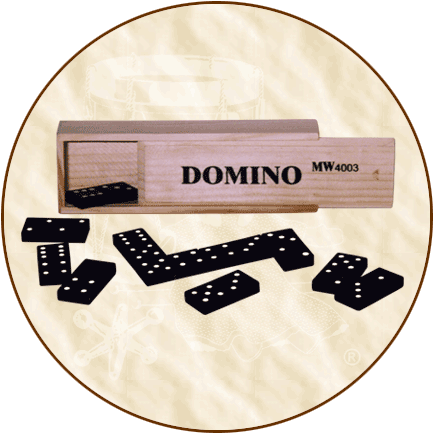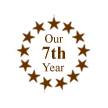.
Continued from product description on
Traditional Games' Page Three...
Historical
Background: The Inuit game of "Á ma zú
a lát" is similar to the game of dominoes. The Eskimo
name for dominoes means "standing upright side by side."
The European game of dominoes seems to have been borrowed from
the Chinese, but only the math elements were retained.
Dominoes have had shapes other than the flat, small pieces
we now know. In Korea, dominoes were long, cube-shaped, bone-faced
bamboo pieces. In India, "pase" dice-looking dominoes
are long rectangular, cubed dice with pointed ends and are made
of bone or ivory prisms, marked on four sides.
Dominoes may have originally been used as counters in dice
games or in a method of fortune telling with dice. In the year
1120 A.D., the dominoes we know today existed in China and it
is believed that dominoes descended from dice around this time.
The game of dominoes was a popular game during Colonial American
times and continues to be a favorite American game. Dominoes
are as popular with adults as they are with children. Many Irish
pubs feature domino games and sponsor domino contests.













